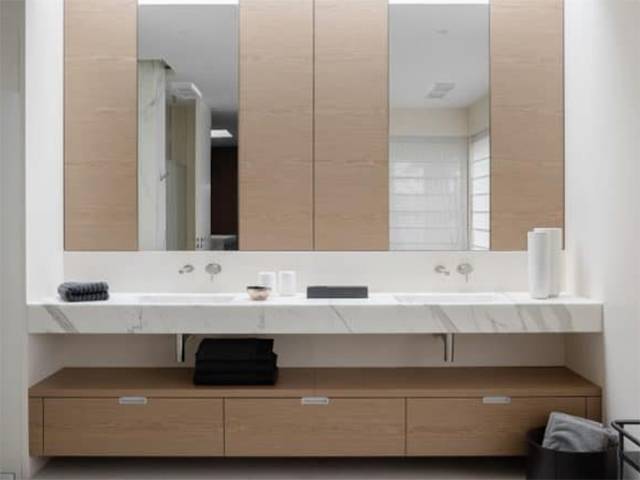Marble in the Kitchen

Should You Use Marble in the Kitchen?
The short answer is: Yes! Marble in the kitchen looks amazing, and while it may need a bit more care, it is worth it.
Marble in the Kitchen
The kitchen can be a beautiful addition to a home, and sometimes, a simple way to achieve that is to bring in some marble. Every marble slab is unique and because of its natural beauty, adds a touch of luxury to the room. You can use it for kitchen tiles, backsplashes, kitchen islands and, of course, countertops.
Nowadays, marble comes in various colors and with different kinds of finishes. Depending on what you need it for, you can choose polished marble, which looks glossy, or honed, which is more matte. Polished surfaces are lovely as kitchen islands and table tops. Still, some people prefer the honed one for countertops, because a dull finish disguises etching.
White marble is always popular and it is a classy, elegant choice. Also, some stains may be less noticeable on white marble. On the other hand, darker hues, like red, gold, or even black will add color and flair to the space. And they may be a good choice if you worry about scratches showing.
Pros and Cons of Marble Countertops
As we already mentioned, one of the greatest pros of marble is its astonishing beauty. Another important thing is that it withstands heat quite well. It is also generally less expensive than granite or quartz.
The kitchen counter usually endures most wear and tear, because we use it every day. With that in mind, there are a couple of reasons you shouldn't use marble in the kitchen. First of all, it can stain. And second, it can easily scratch or chip. But these are not as scary as you may think.
Yes, marble is more porous than granite or quartz, which means that some spills can seep into the stone and leave a stain. However, if your marble benchtop has been properly sealed and you wipe spills quickly, this will never be a problem.
Another characteristic of marble is that it is a "soft" stone, easy to work with. That is why some recommend you don't get sharp edges on your countertop. If you hit it hard enough, you could chip away a piece, so it's better to get slabs with rounded corners. In addition, using sharp objects like kitchen knives can leave scratches on the surface.
Nevertheless, we can't deny there is beauty in these imperfections. And let's not forget that the natural swirls and vein patterns of marble can often do great at hiding stains and scratches. Most importantly, you can always sand down and polish marble again, giving it a new life.
How Can Marble Countertops in the Kitchen Be Protected?
With proper care, there is no reason to think your marble countertops can't last a lifetime. Here are a few tips on how to protect them.
First off, marble should be sealed professionally right from the start. From time to time, this may need to be repeated, but you can even do it yourself if you want to save money.
Second, don't let water or lemon juice spills stay too long on the counter. Wipe them as soon as possible, and you won't have to worry about stains.
In line with that, also avoid using harsh cleaning products which contain acid. Hot water and soft towels are the best, and choose baking soda over abrasive chemicals.
Finally, instead of chopping up food directly on the marble, use a cutting board.
Conclusion: Why Marble Counters Are Perfect in the Kitchen
The unique beauty of marble recommends it for large surfaces such as countertops and backsplashes. With marble counters, your dream kitchen can be both functional and elegant.
MORE



